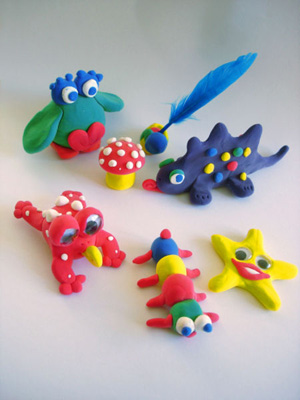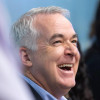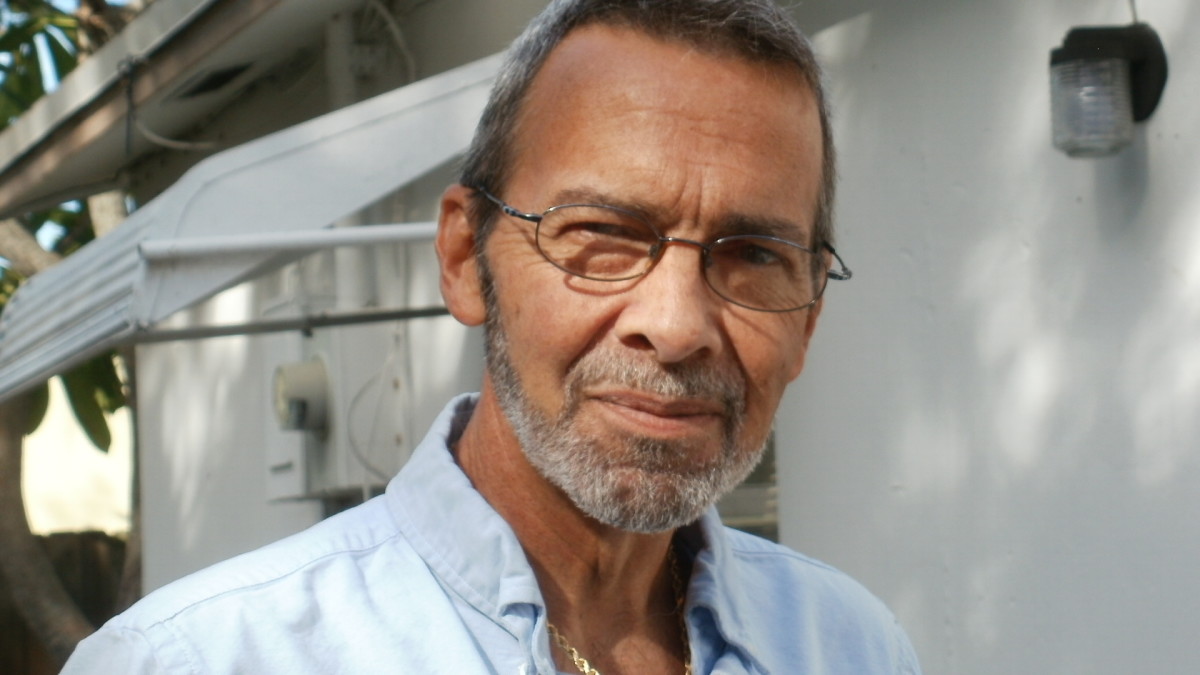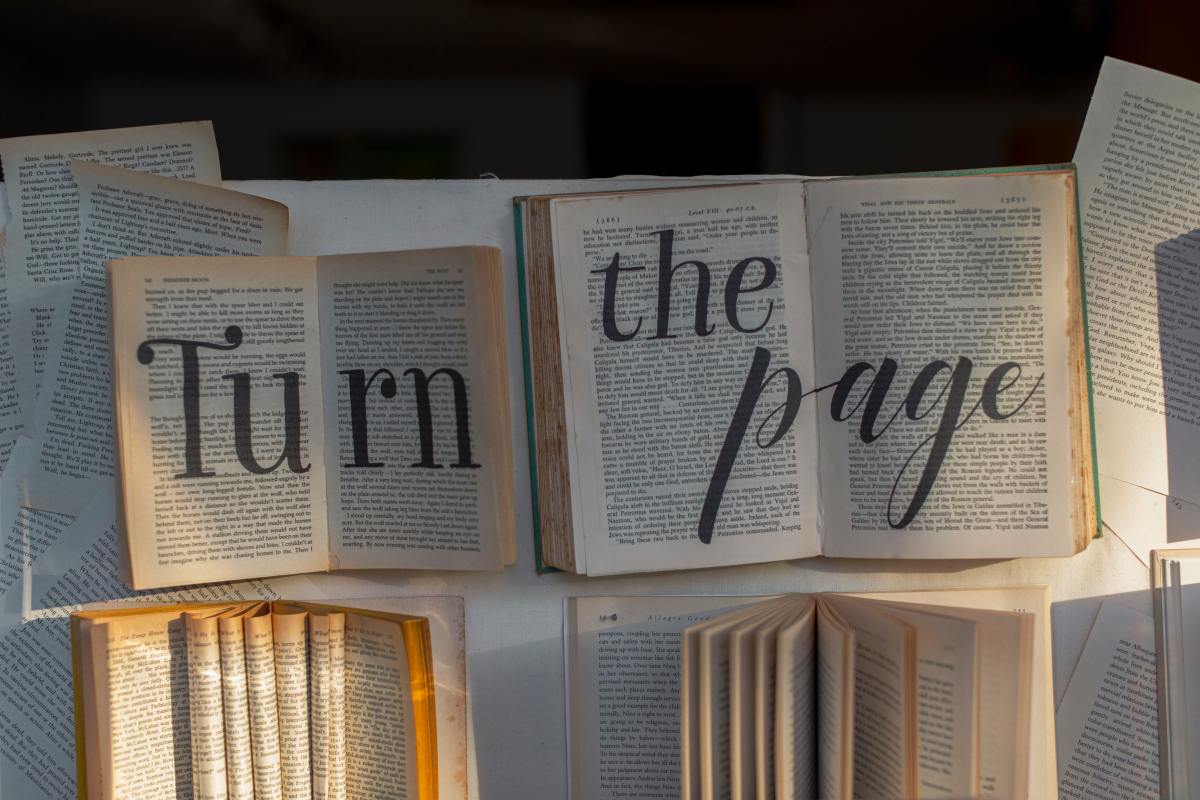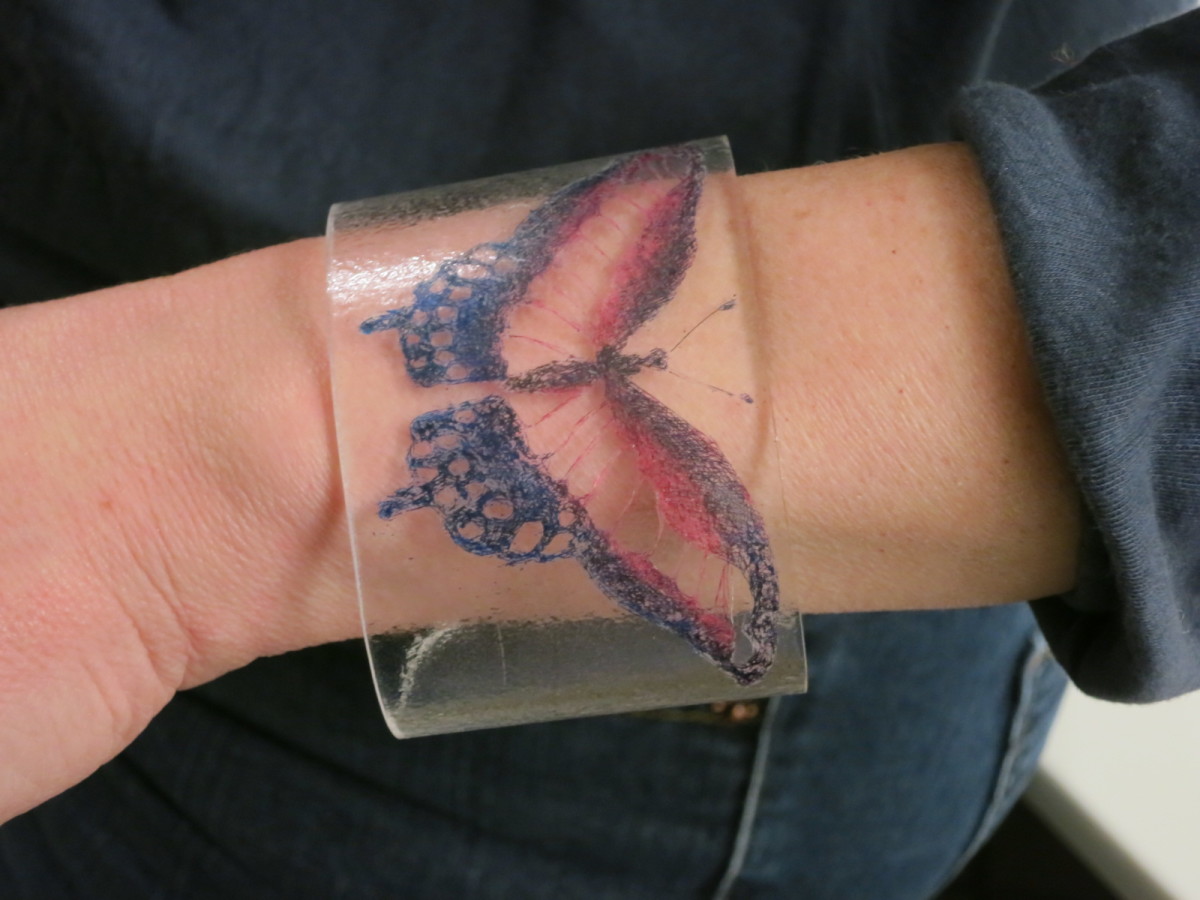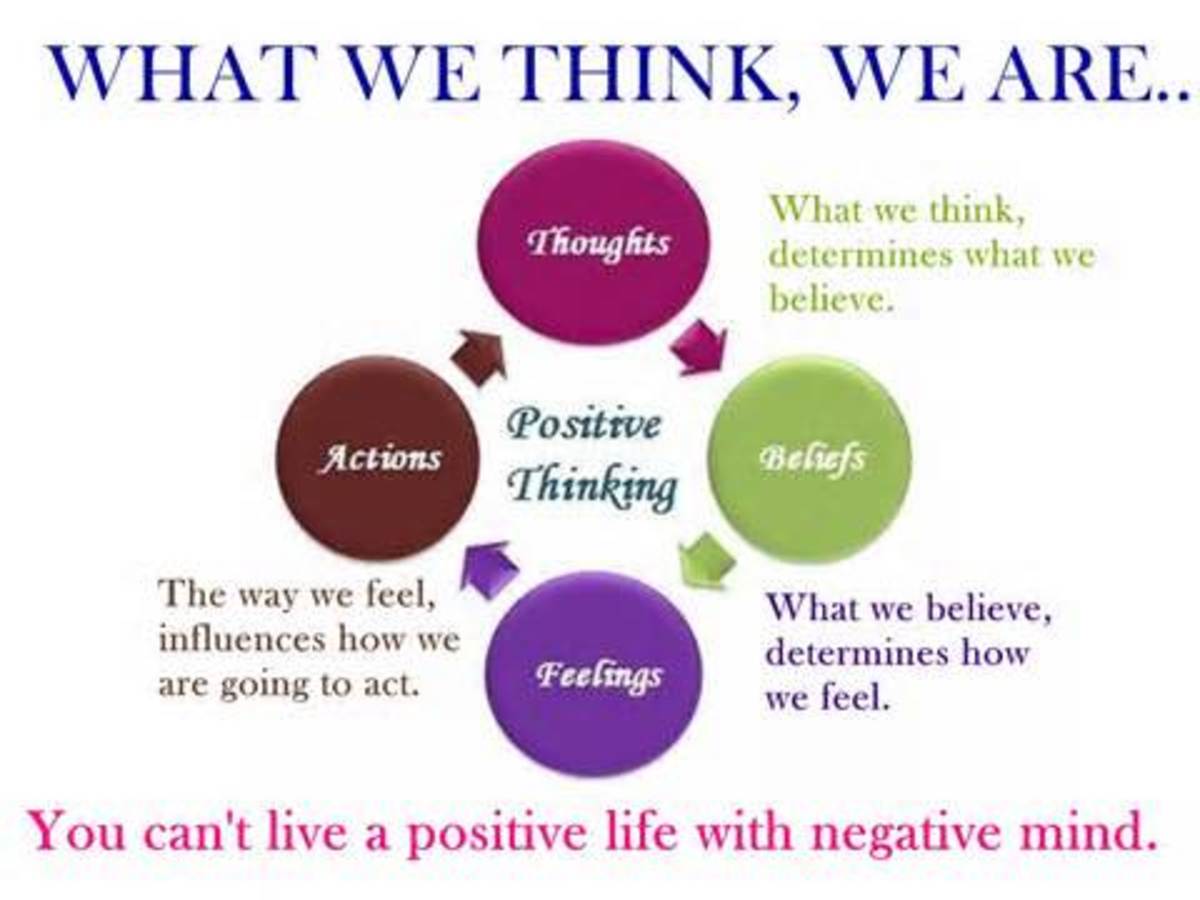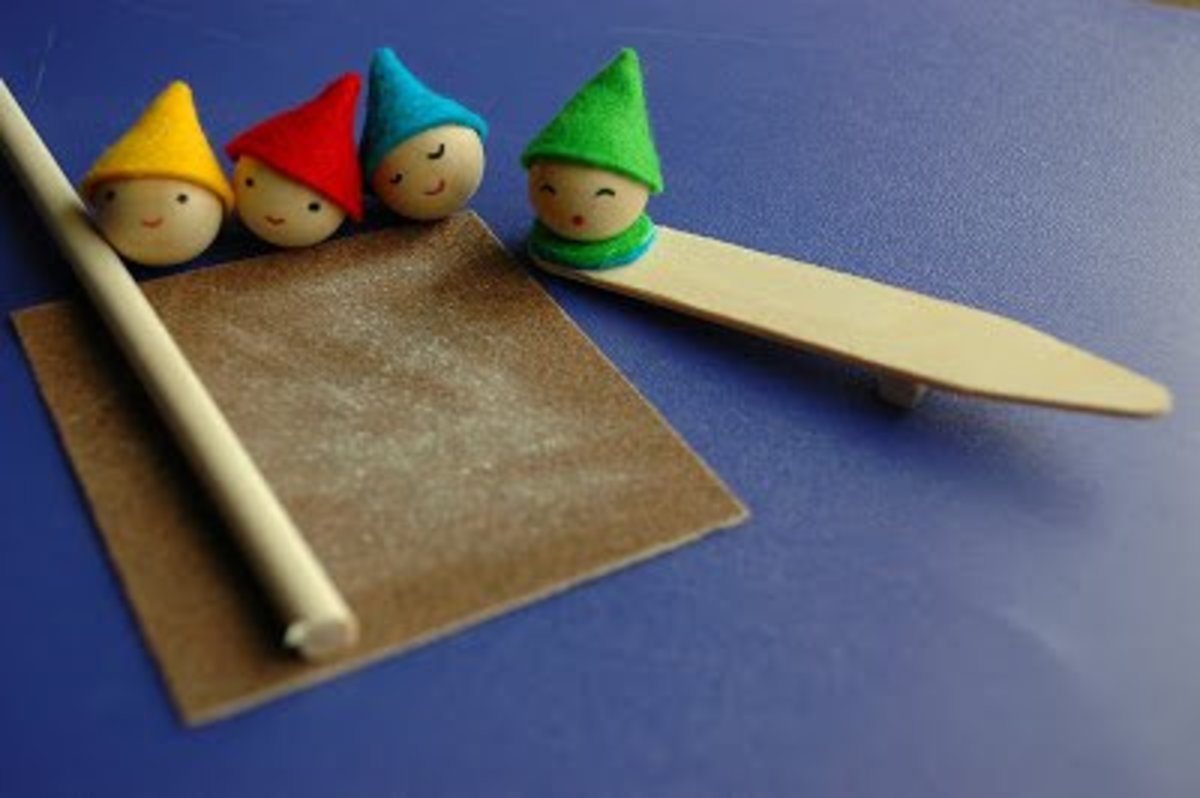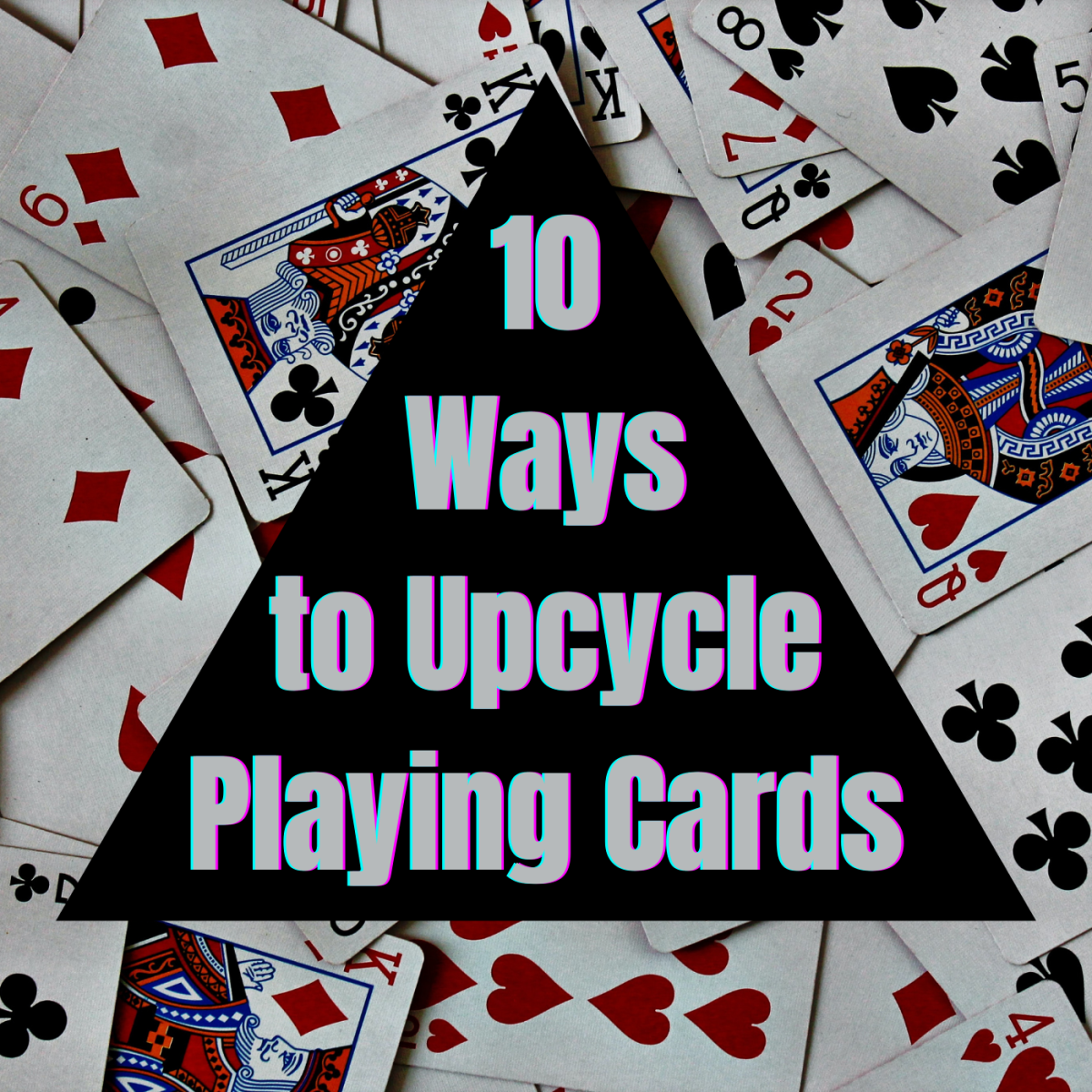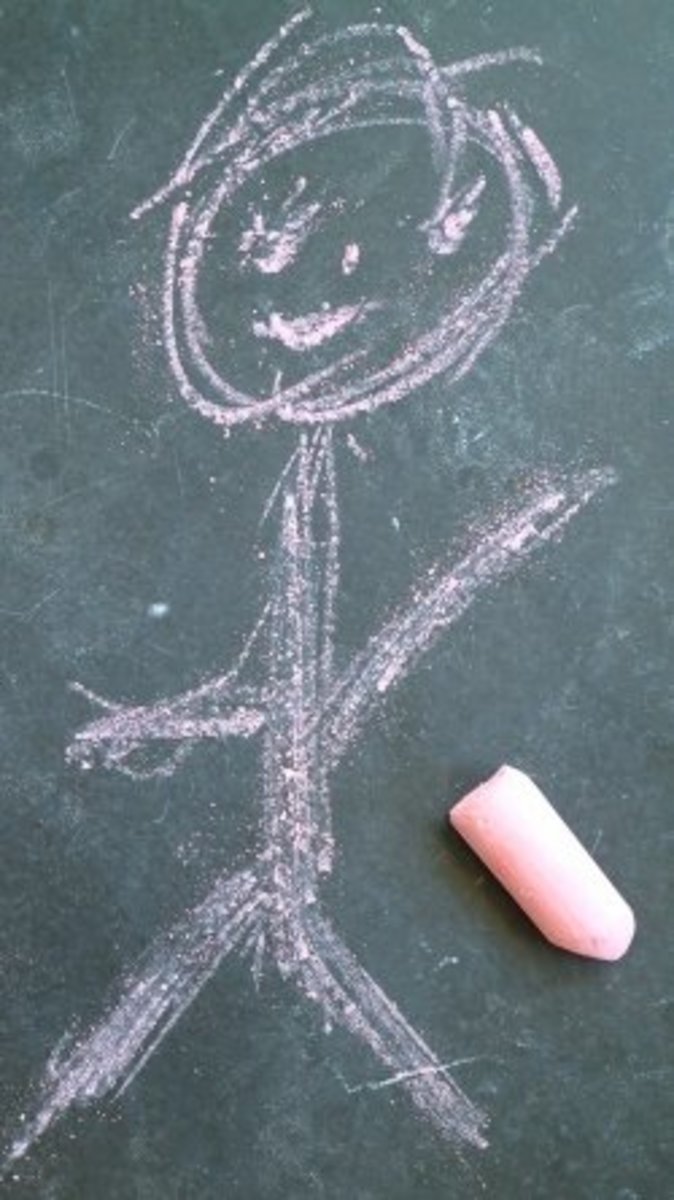Wet, Wild and Whimsical
A Whole New Mind
Recently, I've read a very interesting theory about a shift in our culture from the numbers-oriented, production industrial-age focus to one where we are more focused on the artistic, spiritual and whimsical. A book that introduces this idea in a very fascinating way is A Whole New Mind, by Daniel Pink. Pink writes about a new paradigm in design, in thinking, in success, etc., through the analogy of right brained and left brained thinking.
Simply speaking, of course, the left brain contains the analytical, numbers-oriented, engineering mind, while the right brain contains the creative, whimsical, artistic, etc. He constructs this argument through a discussion of six abilities that are now increasingly defining our culture: symphony, meaning, empathy, design, story and play. Think of it this way, throughout the industrial age and the technological age, we've needed very pragmatic thinkers - people who could put together systems, make things connect, build buildings, track dollars and cents. Access to the "good life" of affluence and means has been largely controlled by our "SAT-ocracy", referring to the various battery of aptitude tests that determine whether we have access to higher education, which generally test our ability to reason logically, sequentially, analytically and and process facts and figures speedily. The shift toward right brained consciousness is one toward a recognition of the artistic/creative value of things. Bringing into the world intrinsic qualities it didn't know it was missing.
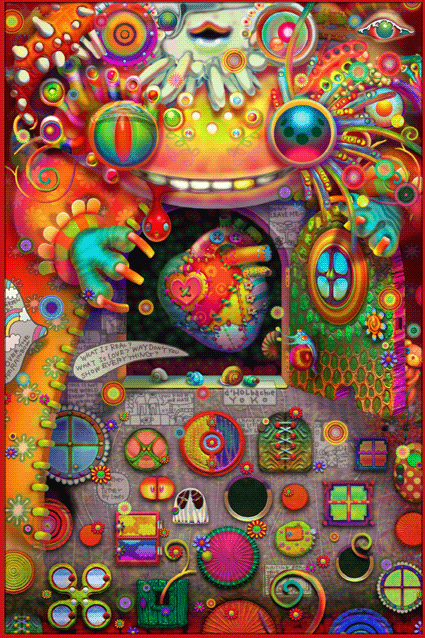
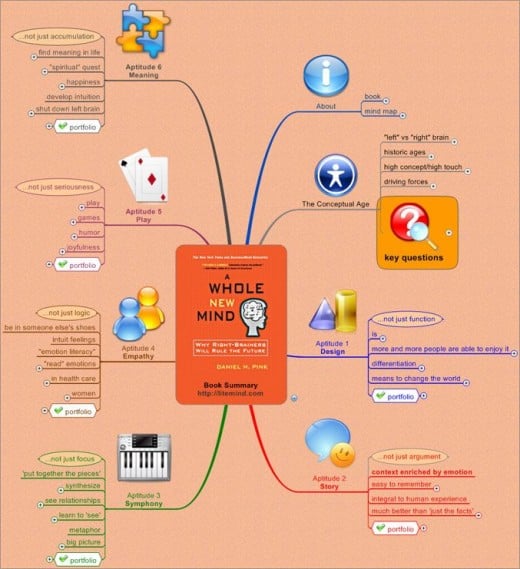
For example, it used to be that we would buy coffee because we needed a caffeine buzz. Now Starbucks is an institution. Their mission: "To inspire and nurture the human spirit— one person, one cup, and one neighborhood at a time." The word coffee isn't even in there!
Pink expertly describes three of the biggest factors contributing to this new paradigm as Abundance, Asia and Automation. We are overwhelmed with choices as a result of the information age - TVs and Ipods and cell phones and with options available to use. Witness the huge megastores we have now strictly tailored to pets, which are bigger than grocery stores were 30 years ago! The knowledge worker from the industrial/technological ages is now seeing their skills being performed cheaper overseas - consider the population of India: 1.2 billion. Think about it - if even a fraction of people living there do a fraction of work to support the Western economy. This isn't something to be afraid of, but to be aware of, in order to plan and prepare for the future.
It's a fascinating read, something worth looking into - not so much as you would a Nostrodamus prediction (how much time do we have left?), but to promote awareness of the shifts that are naturally occurring in our culture.
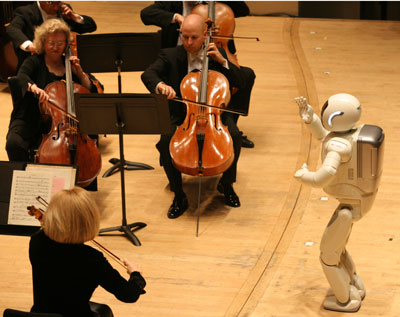
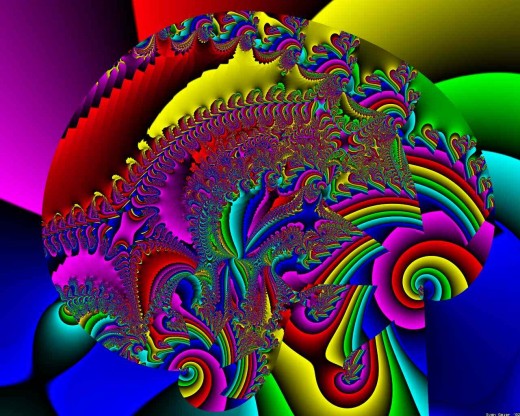
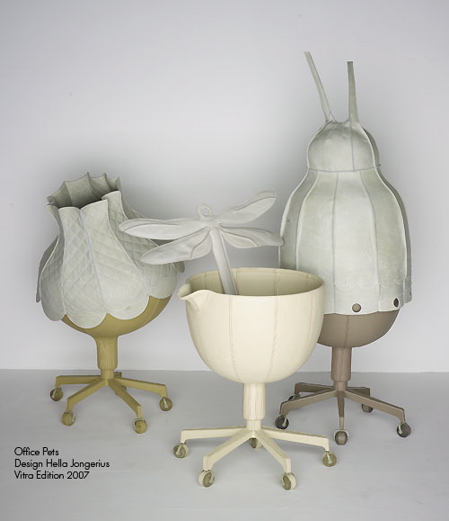
Medicine
Not long ago, I read this amazing article about a woman who was blind for nine years and had her eyesight restored through surgery. Now, just use your left brain for a moment: Assuming you were an ophthalmologist and a patient's eyesight had declined to this degree, you would likely consider that as being a permanent condition. But, let's assume you are wildly optimistic - perhaps an organ donation, right?
Here's what happened. In this procedure, over a span of six months, there were several surgical steps. Surgeons removed one of her teeth, drilled a hole into it, inserted a plastic lens into the hole, and then implanted the tooth/lens combination back into her eye. Seriously. Read the article.
So, who in their infinitely creative mind could have thought this up?
And more importantly, what else could be accomplished through an intelligent acknowledgment of the colloquial "outside the box" thinking?
Oh, I know, you're so distracted by this story, you're now going to click out of this article to read about this. I'll wait.
http://www.npr.org/templates/story/story.php?storyId=112933586
Architectural design - which building is more interesting?
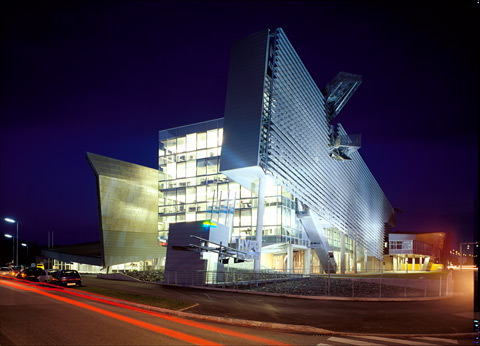
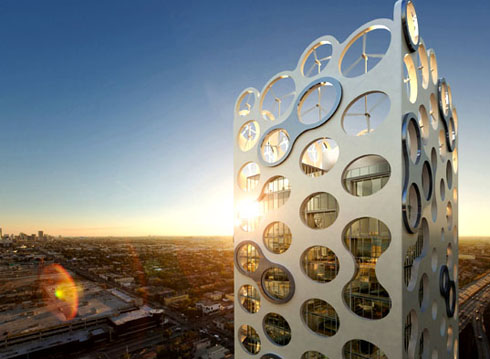
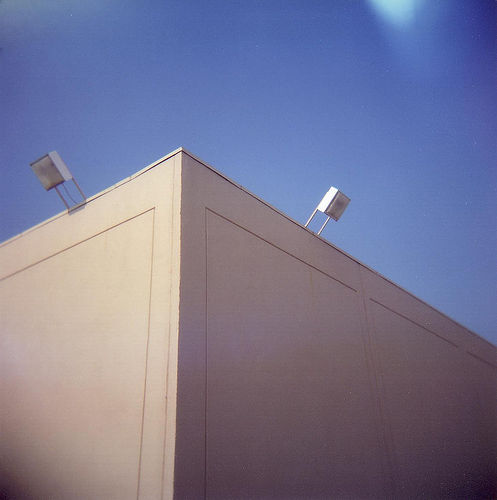
Visual poetry
I really love to read and explore works that challenge basic assumptions we make of our lives, and further, explore possibilities of being and ways of thinking that surpass our current limitations. Art and design are individual, personal. I probably like something you hate and vice versa. Some people like precision in paintings - like photographs; others like them fuzzy and impressionistic - you have to stare at them awhile to see what's going on, and even when you do, what you see and what I see may be completely different.
So why should art be something you have to go somewhere to see? Art ... and design ... and symphony ... are all around us. Listen, and see. An awareness of our surroundings tells us that everything beautiful, magical and enlightening is already all around us. The difference is where we place our attention.
The focus on the intrinsic, the whimsical, the creative, is a broader, wider, wiser focus - not on what we feel doesn't work in our lives, or on how bad the economy is. Because, in the very broad sense, life does work - clearly. The symphony of plants and organisms, air, water, fire, wind, etc. exists. A greater intelligence applied to our surroundings supports this. The interconnectedness of things is fascinating, and it doesn't really matter how it came to be that way for one to appreciate nature, to appreciate the workings of the food chain and the composition and nature of atoms and quantum mechanics (i.e. that which is observed is affected by that very observation.)
The problem is that we try too hard to contain and control, and then get frustrated because we can truly do neither.
There is a beauty in taking what we've come to see as the common, everyday things - sights, sounds and smells - and turning them on their edge to see them in a whole new way. To utilize our senses in surprising ways and make us smile and reflect.
I find Pink's book and theory to be fascinating and life-affirming. It opens up doors of possibility that challenge us all to inspire and enlighten. I encourage you to read it, reflect on its application and consider the power and vitality that come from embracing this shift.
